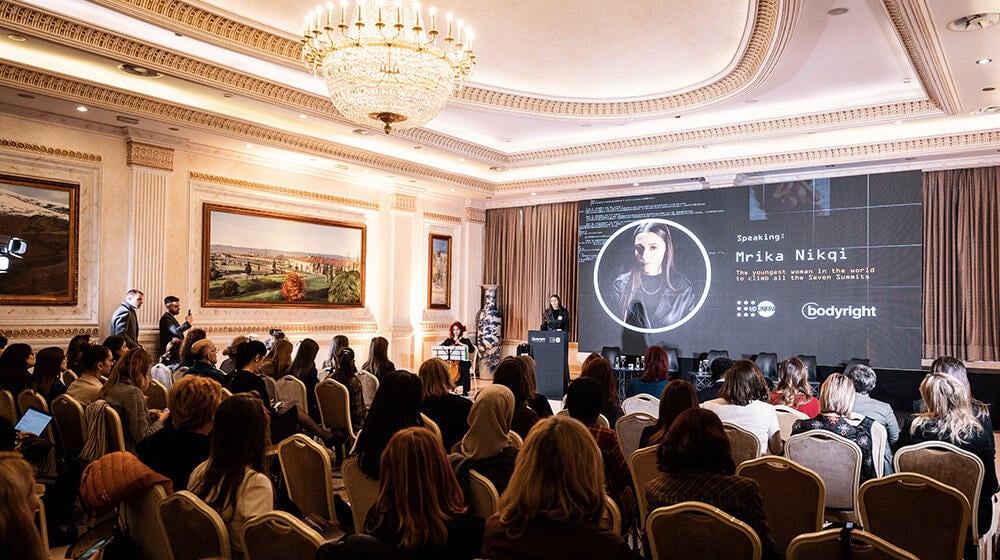On the wings of the 16 Days of Activism, UNFPA Kosovo and its partners launched the Kosovo version of the global Bodyright campaign. It takes the global Bodyright key messages and adapts them to the Kosovo context through a variety of means. One is a Kosovo version of the Bodyright video, featuring an inspirational young personality – Mrika Nikqi, the youngest woman to climb the Seven Summits of the world, who herself was recently the target of sexual harassment on the streets of her hometown of Pejë/Peć. Another is a review of the Kosovo legislation relevant to online and digitally-enabled violence against women, as a platform for the advocacy component of the campaign directed to strengthening the legal protection of our online and digital content. A host of other social and regular media messaging is accompanying our effort in Kosovo.
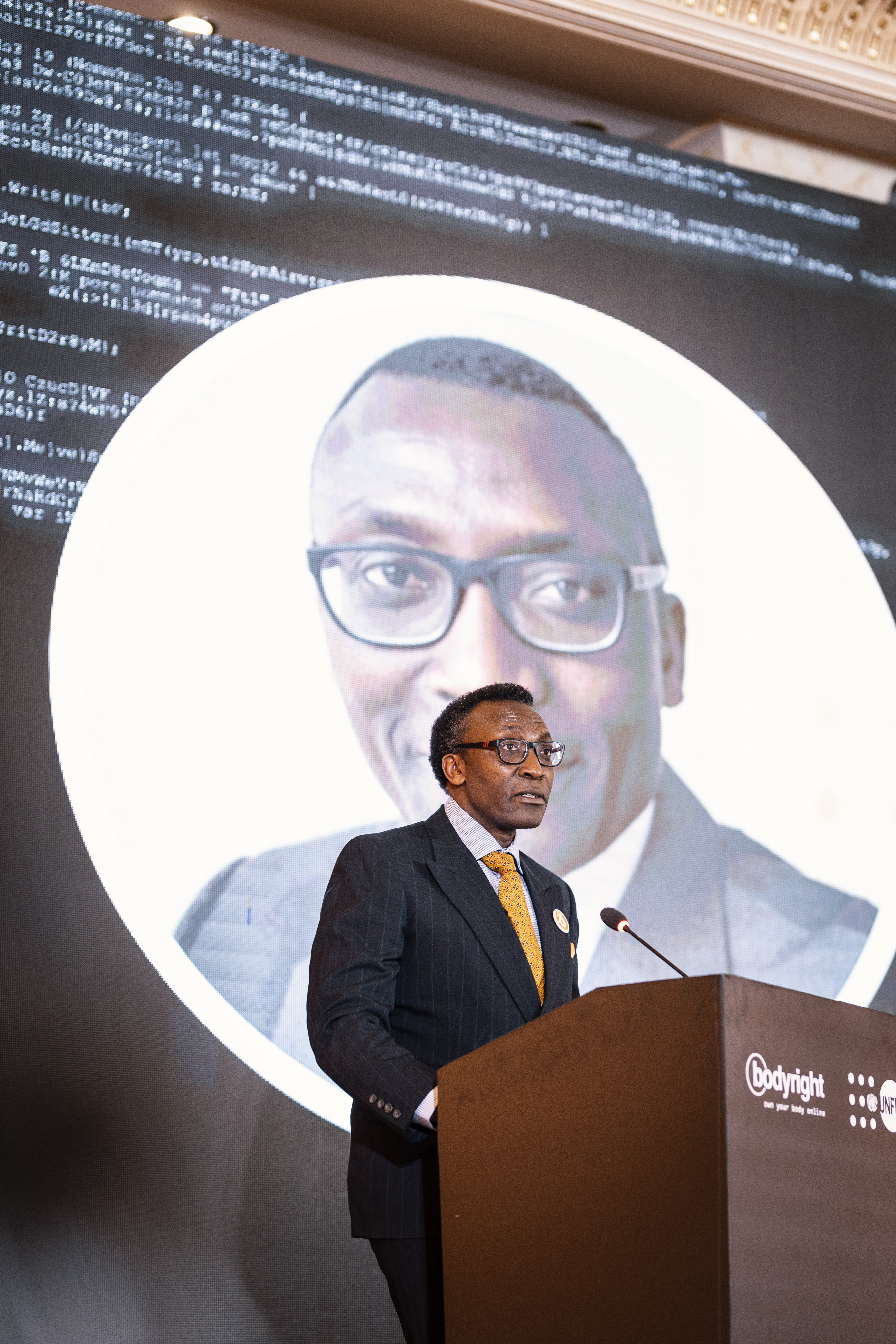
The centerpiece of the Kosovo version of the Bodyright campaign was our launching event on 13 December. In partnership with the IPKO Foundation, representing the socially-engaged dimension of a leading digital company in Kosovo, the launching event sent a strong and highly publicized message that online violence against women is the emerging central frontline for anyone striving to gender equality and ending violence against women in general. The event gathered the key Kosovo stakeholders from all walks, the political establishment, the private tech sector, civil society organizations, and independent experts.
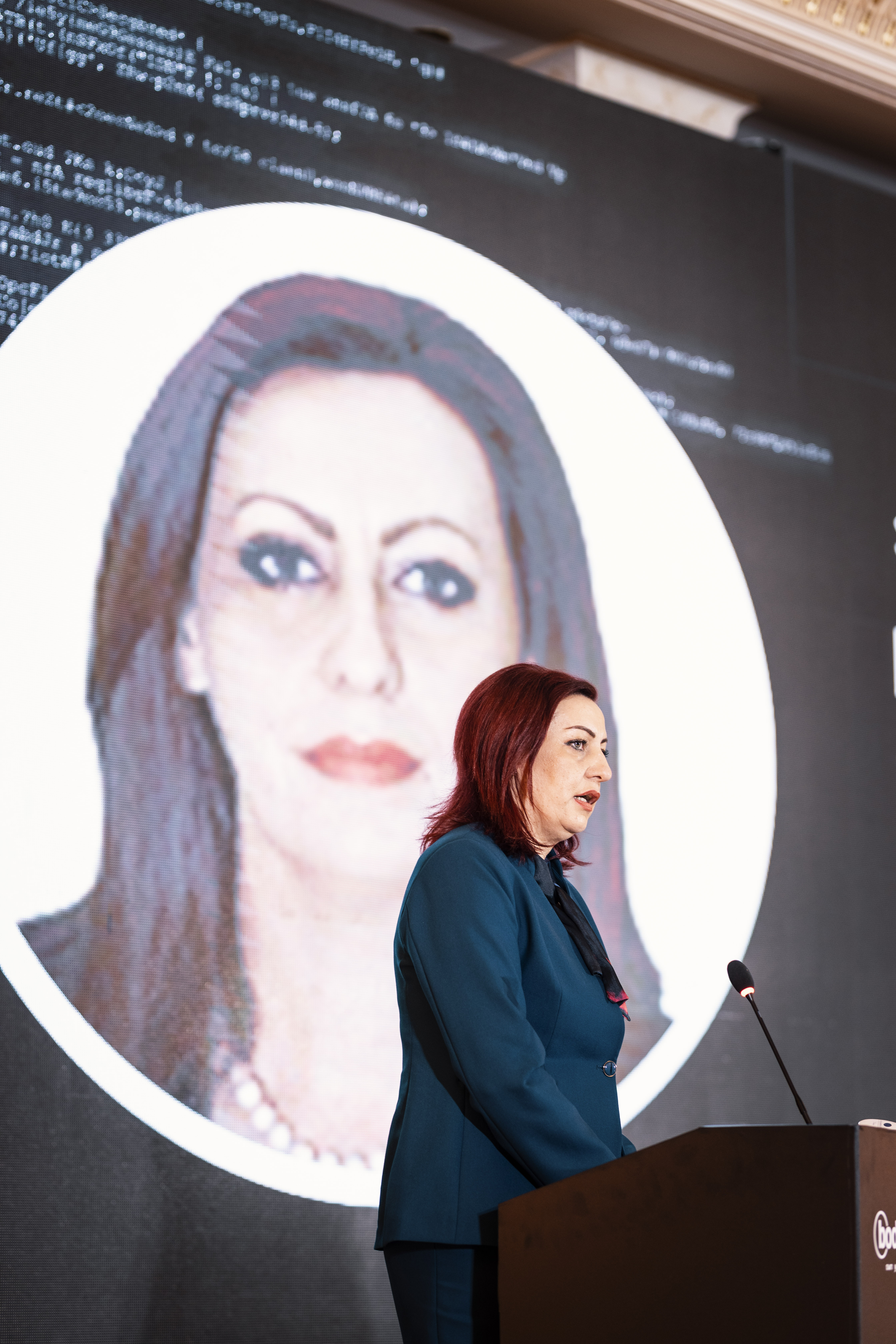
Mrika Nikqi – the face of the Kosovo Bodyright campaign – spoke first to outline the perspective of a young woman in Kosovo and the challenges she gets online, especially as a public personality with a high number of followers. Using her own recent example, she explained how difficult it was to publish a CCTV video of a physical sexually-motivated harassment against her and the reactions it got. The public response turned out to be overwhelming and positive, although some hateful messages did appear in response. Mrika concluded that she understands how difficult it is for women to speak up, report and publicize the harassment they experience, but also that it is well worth doing it because it does lead to widespread condemnation and often to more energetic institutional response.
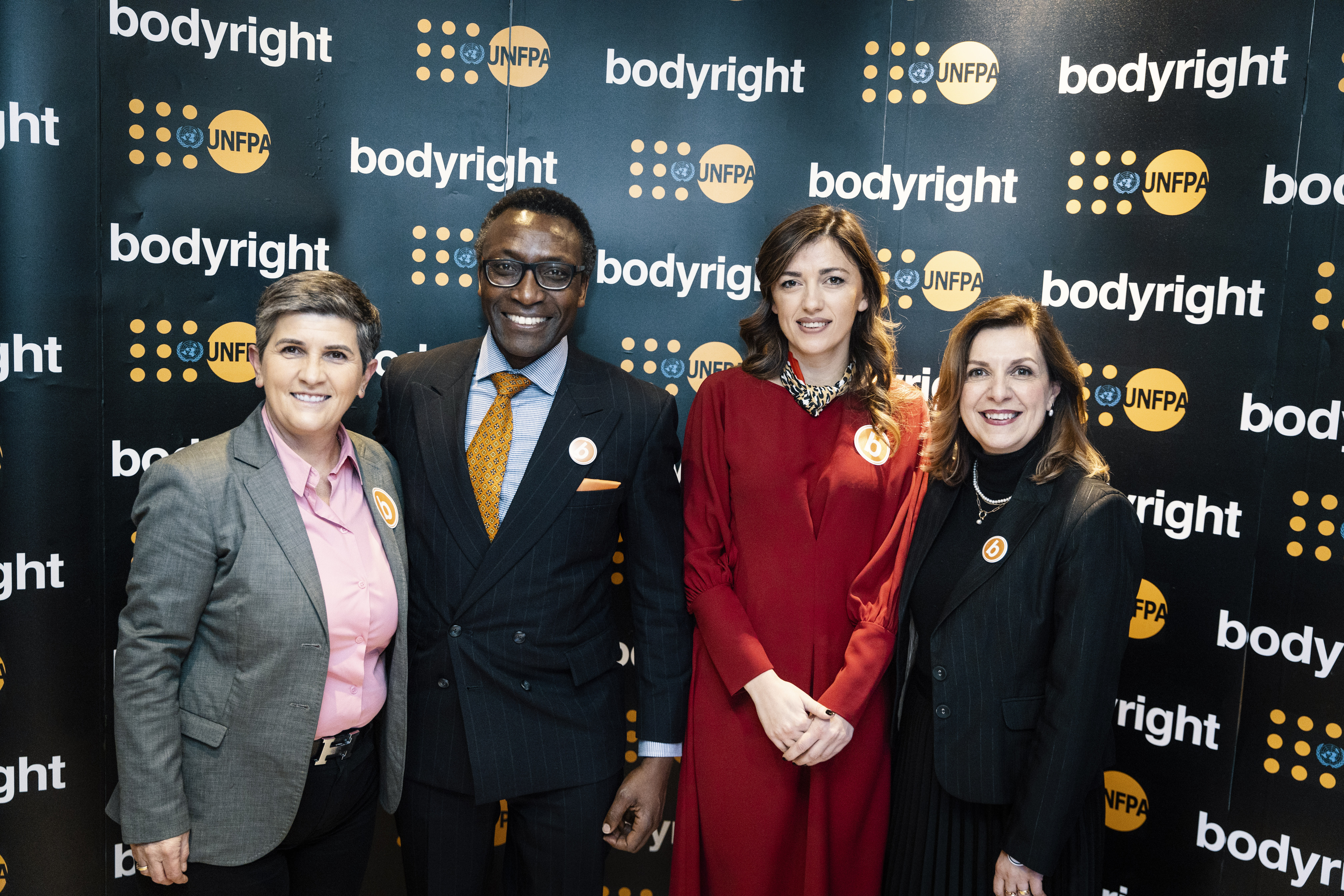
UNFPA Representative for Bosnia and Herzegovina, Country Director for Serbia, Republic of North Macedonia and Director for Kosovo John Kennedy Mosoti also spoke at the launching event, outlining the key elements of the global UNFPA Bodyright effort and what it aims to achieve, including here in Kosovo and the region. Mr Mosoti recalled the two women tragically killed by their partners in recent weeks, and precisely during the 16 Days of Activism. Their fate was sealed by their aggressors, but their tragedies strengthened the resolve of our organization and all those fighting to end violence against women. In that regard, UNFPA’s Bodyright represents a distinct form of addressing a specific exhibition of this violence, experienced or witnessed by an alarming 85% of women globally. Mr Mosoti further pointed to indicative surveys conducted in Kosovo, showing similar results, such as the fact that 43% of the respondents answering ‘yes’ to the question if online sexual harassment of women is an issue they witness around them. Mr Mosoti also spoke about the advocacy component of the campaign, stressing that beyond raising awareness UNFPA will work with its national partners to upgrade the legislative, policy and institutional framework that protects women from online harassment. Their content needs to be as protected as that of corporations, musicians, or other forms of copyright material.
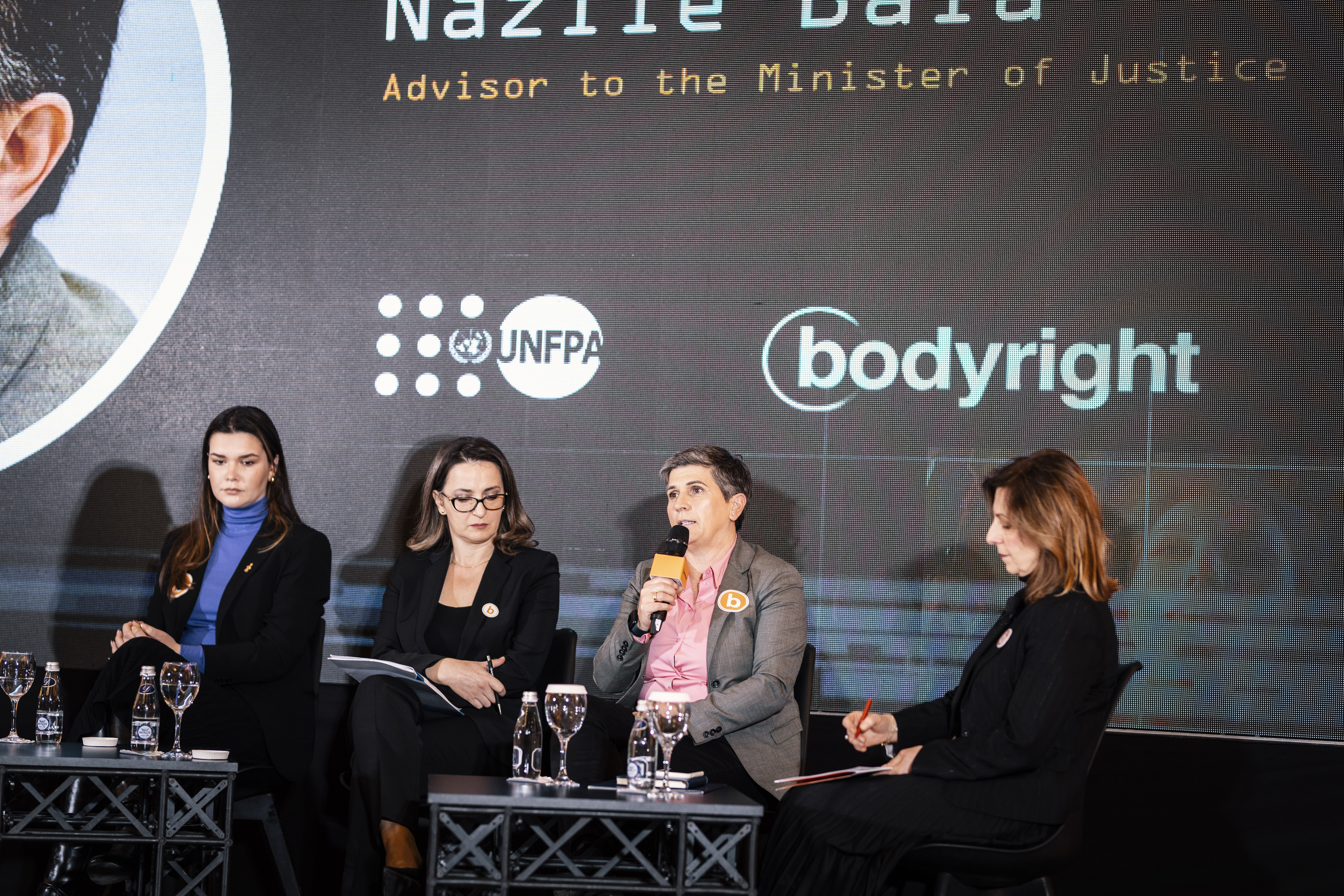
Two key Kosovo Institutions representatives were also there to address the gathering. Deputy Prime Minister for human and community rights Emilija Redžepi spoke passionately about the every-day struggles of women in Kosovo, the uphill battle for equality starting from school and family and continuing onto marriage and professional life. Ms Redžepi placed the Bodyright effort front and center in the context of gender equality and ending gender-based violence and stated her strong personal commitment to the cause. Minister of Justice Albulena Haxhiu outlined the strong commitment Kosovo Institutions place on the fight against domestic and gender-based violence and how the ministry she leads represents the focal and coordination point of the Kosovo executive in this regard. She listed a number of recent policy initiatives taken in this regard, including the new National Strategy on Protection Against Domestic Violence and Violence Against Women 2022-2026, drawing from the lessons learned of the previous implementation period and expanding the effectiveness of the institutional delivery in this area. The Strategy also includes points relevant to online and digitally-facilitated violence, Ms Haxhiu noted. While proud of the actions taken thus far, the Minister of Justice underlined that these are just some of the first steps taken and stressed the commitment of the Kosovo Institutions to work with UNFPA on further practical solutions.
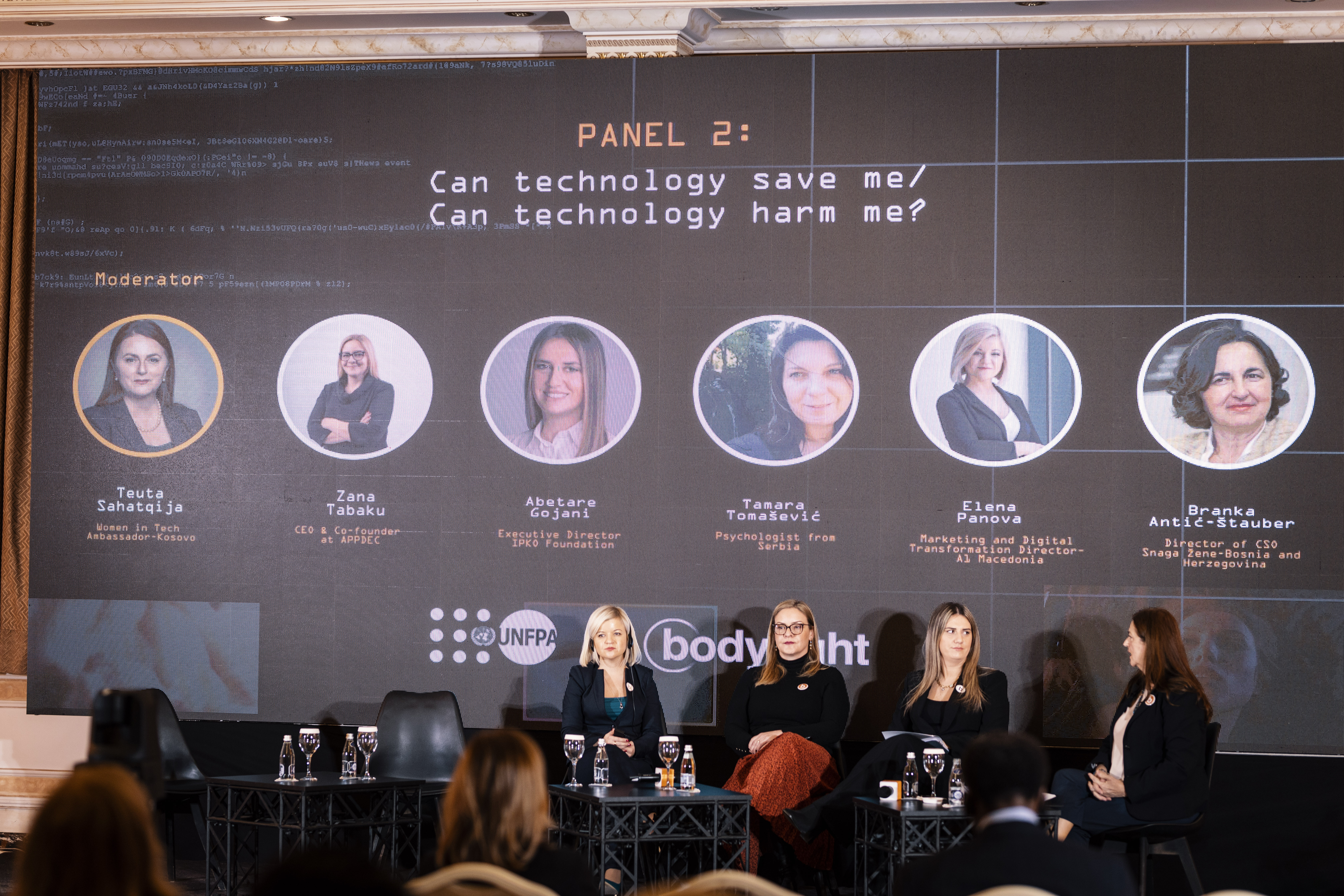
Beyond the key messages, the Bodyright launch in Kosovo featured two panels devoted to in-depth analysis and sharing of concrete experiences of effective solutions. The first one was on the ‘Policy framework and country contexts of cyber violence,’ moderated by UNFPA Head of Office Visare Mujko-Nimani and featuring key professionals from the institutional and civil society spectrum, including a guest from North Macedonia. The second was called ‘Can technology save/harm me’ and it featured a number of tech world professionals from Kosovo and the region discussing industry insights under moderation of Teuta Sahatçiu, Women in Tech Ambassador and a prominent women rights activist.
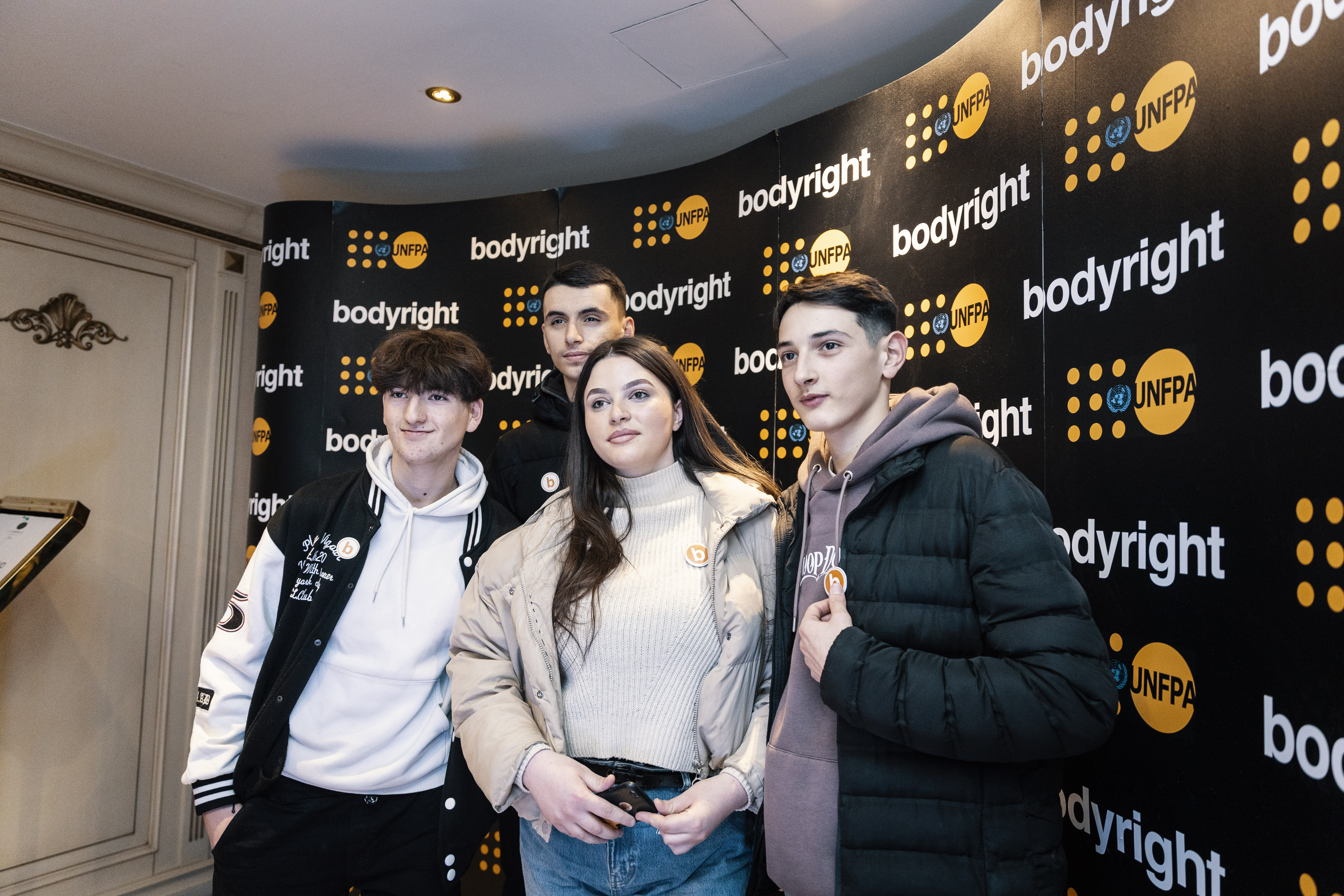
The effects of the Bodyright campaign in Kosovo are therefore clear and visible. They are, however, just the beginning. It is all about telling our interlocutors and public that we take this issue seriously and that we have a plan. It was about laying the groundwork for a long-term sustained action in Kosovo towards real improvements in the protection of women’s digital content and addressing this central contemporary exhibition of violence against women. We have full commitment of our stakeholders and we will follow up.

